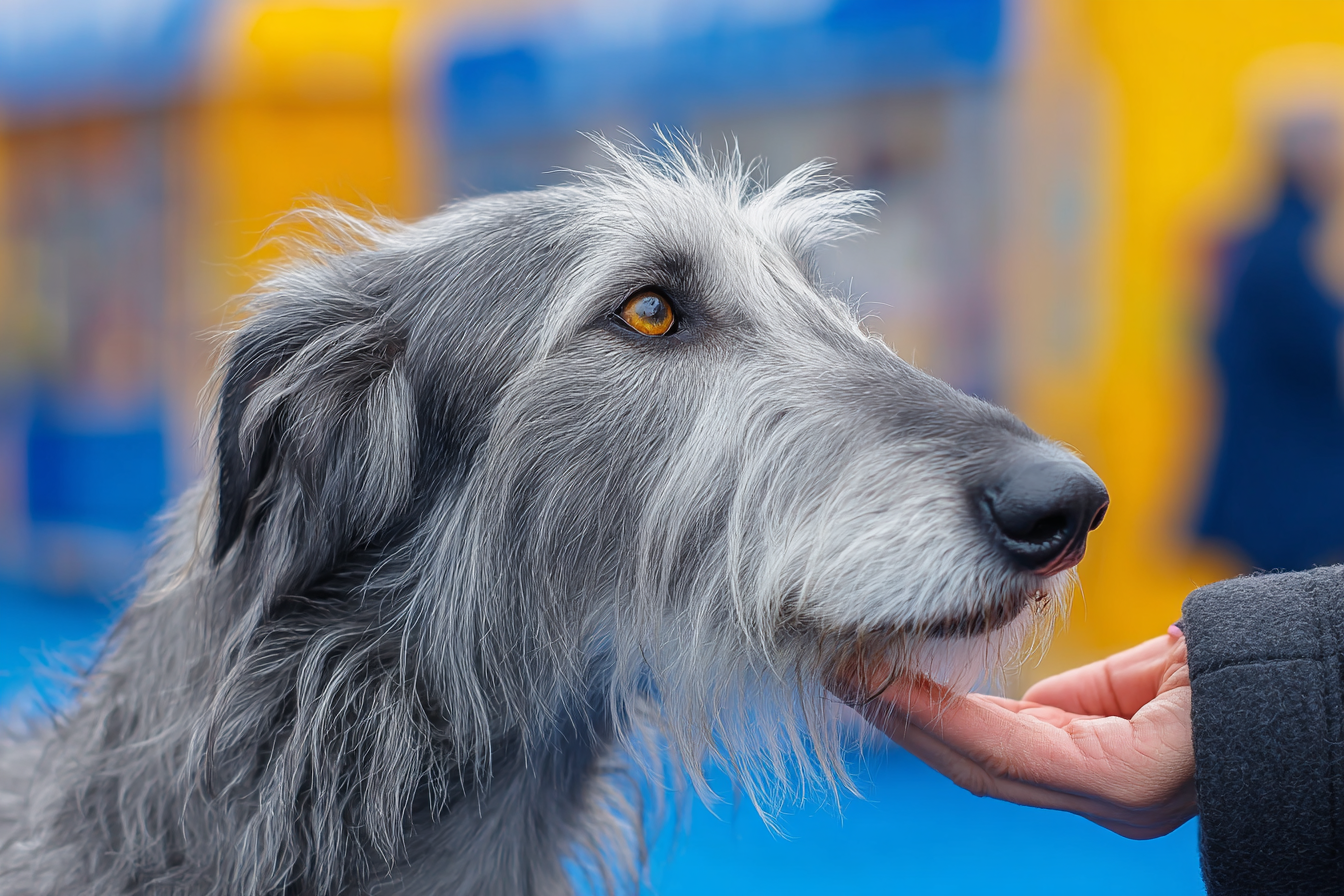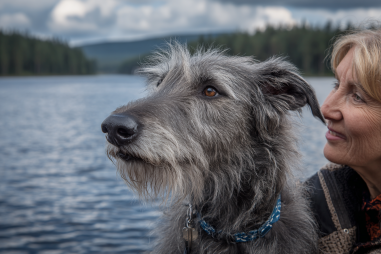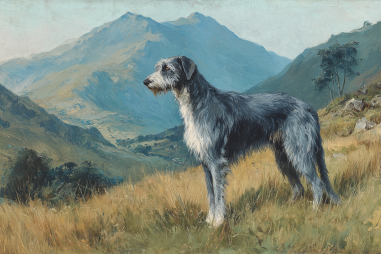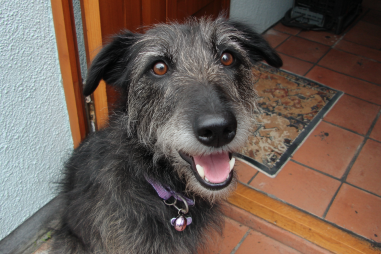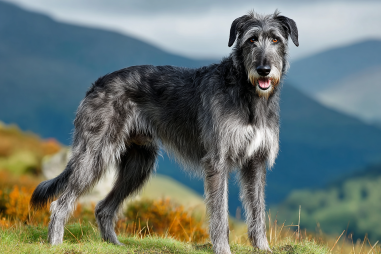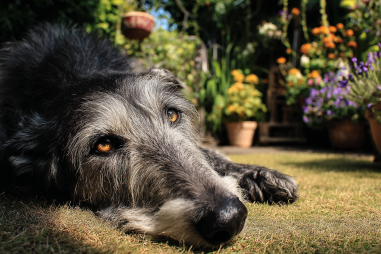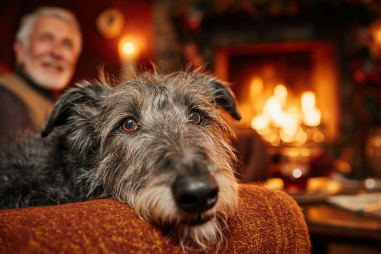Scottish Deerhounds are majestic, gentle giants known for their calm demeanor and dignified presence. However, like all dog breeds, they can sometimes express behavioral challenges that may puzzle or frustrate their owners. Understanding the common behavioral issues seen in Scottish Deerhounds and knowing how to address them is essential for fostering a harmonious relationship and ensuring the well-being of these noble companions.
Typical Behavioral Tendencies of Scottish Deerhounds
Scottish Deerhounds have a unique personality that combines calmness with bursts of energetic play. Typically, they are affectionate, loyal, and gentle, especially with family members. Their history as hunting dogs means they have a strong prey drive and a natural inclination toward independence. This breed tends to be somewhat reserved with strangers and may show a certain degree of aloofness, which is not uncommon for sighthounds.
Deerhounds are also known for being relatively calm indoors and usually appreciate lounging quietly. However, they require regular exercise to maintain their physical and mental health. Without sufficient activity, they might resort to behaviors that stem from boredom or pent-up energy.
Common Behavioral Problems in Scottish Deerhounds
While generally well-mannered, Scottish Deerhounds are not exempt from some behavioral issues. Here are some of the most common challenges owners might encounter:
- Separation Anxiety: Scottish Deerhounds develop strong bonds with their families and can become distressed when left alone for long periods. Signs include barking, whining, restlessness, or destructive behavior.
- Stubbornness and Independence: Their history as working hunting dogs means they often have an independent streak. This independence can sometimes translate into stubbornness during training or reluctance to follow commands.
- Excessive Barking: While generally quiet, some Deerhounds may bark excessively if they feel bored, are startled, or sense an intruder.
- Prey Drive Issues: Their hunting background makes them highly alert to small animals such as squirrels, rabbits, or cats. This instinct can lead to chasing behavior that is difficult to control off-leash.
- Social Anxiety or Shyness: Some Scottish Deerhounds may be shy or nervous around unfamiliar people or dogs if not properly socialized early in life.
Training Tips to Correct Behavioral Challenges
Addressing and preventing common behavioral problems in Scottish Deerhounds revolves around consistency, patience, and positive reinforcement training.
- Early Socialization: Expose your Deerhound puppy to a variety of people, environments, and other animals. This helps reduce shyness and fearfulness later in life.
- Positive Reinforcement: Reward-based training using treats, praise, or toys encourages cooperation and reduces stubbornness. Avoid harsh punishments as Deerhounds are sensitive and can become fearful or withdrawn.
- Basic Commands: Teaching essential commands such as sit, stay, come, and leave it is crucial, especially considering their prey drive. Consistent training sessions reinforce good behavior and improve response to commands, even outdoors.
- Leash Training and Recall: Due to their tendency to chase, strong recall skills are vital. Use long leashes during training to give some freedom while maintaining control.
- Exercise and Mental Stimulation: Provide daily walks or playtime to burn excess energy and reduce the likelihood of boredom-induced behaviors such as chewing or excessive barking.
Environmental Modifications to Support Good Behavior
Creating a supportive environment is just as important as training to manage behavioral issues effectively. Here are some ways to modify your home and surroundings for your Scottish Deerhound:
- Safe and Comfortable Space: Designate a quiet, cozy area where your Deerhound can rest undisturbed. This is especially helpful for dogs with anxiety.
- Interactive Toys: Use puzzle toys or treat-dispensing balls to keep your dog mentally stimulated and entertained during alone times.
- Secure Fencing: Given their prey drive and speed, ensure that your yard has secure fencing to prevent escapes during outdoor play.
- Calming Aids: Consider pheromone diffusers or calming sprays that can help reduce anxiety in sensitive Deerhounds.
- Establish Routines: Dogs thrive on routine; feeding, exercise, and playtime scheduled consistently can make your Deerhound feel more secure.
When to Seek Professional Help
Sometimes, despite your best efforts, behavioral issues may persist or worsen. It’s important to recognize when to consult a professional to ensure your pet’s welfare and your peace of mind.
- Persistent Separation Anxiety: If your Deerhound shows destructive behavior or severe distress when alone, a certified canine behaviorist or trainer can offer specialized strategies.
- Aggression or Fearfulness: Though rare in Scottish Deerhounds, any signs of aggression toward people or other animals warrant professional evaluation.
- Training Plateaus: When training seems ineffective or your dog doesn’t respond to conventional methods, professional trainers with experience in sighthounds can provide tailored approaches.
- Health-Related Behavior Changes: Sudden behavioral shifts may indicate health issues, so consulting a veterinarian is essential before assuming it’s purely behavioral.
Reaching out early for expert help can prevent escalation and improve quality of life for both you and your Deerhound.
Enjoying a Rewarding Relationship with Your Scottish Deerhound
Scottish Deerhounds are remarkable companions, prized for their grace, loyalty, and calm nature. By understanding the breed-specific behavioral tendencies and common challenges, owners can create a nurturing environment that encourages positive behavior. With patient training, environmental support, and professional guidance when necessary, Scottish Deerhounds flourish into well-adjusted family members who bring joy and companionship for years to come.

